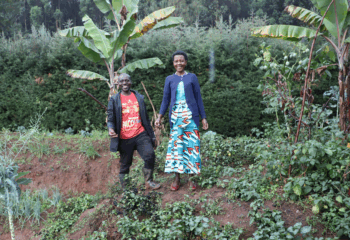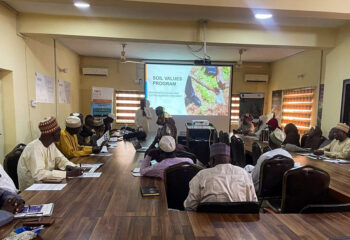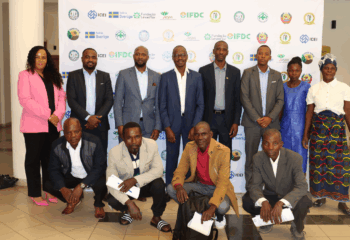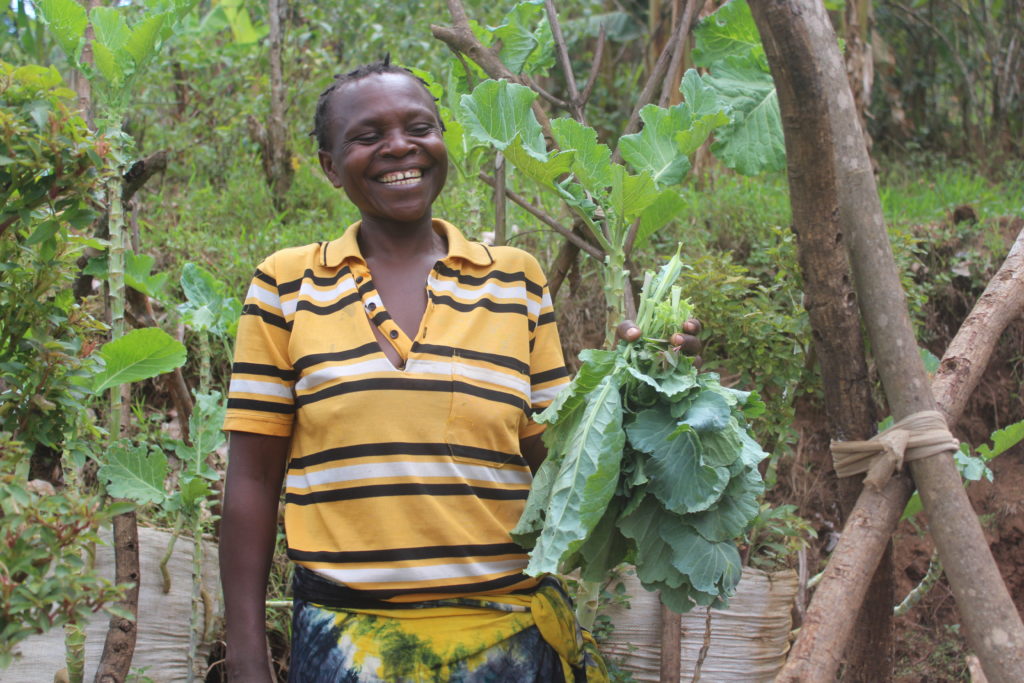
The possibility of having vegetables daily on the family menu at no cost is the idea that three astute women from Uganda have bought into. Since 2018, Suena Chebet of Kabortin village in Kween District, Lydia Cherotwo of Swenya village in Kapchorwa District, and Nabugwaya Nancy of Buwanagadi village in Mbale District have been growing vegetables in garden bags. The Promotion of Nutrition-Sensitive Potato Value Chains in East Africa (PNSP) project recruited farmers into Farmer Field Business Schools and trained them on kitchen gardening as one way to diversify their diet.
Although they live in three separate districts of Eastern Uganda and do not know each other, these female farmers shared a common challenge: a limited supply of vegetables for their families in the dry season.
Vegetables are an important source of vitamins and minerals necessary for health and well‑being. In Eastern Uganda, one in three women of reproductive age and one in two children below the age of five are anemic. Eating vegetables improves dietary micronutrient intake for both women and children. In a country in which the majority of rural communities practice rainfed agriculture, addressing dietary diversity is a challenge during the dry season.
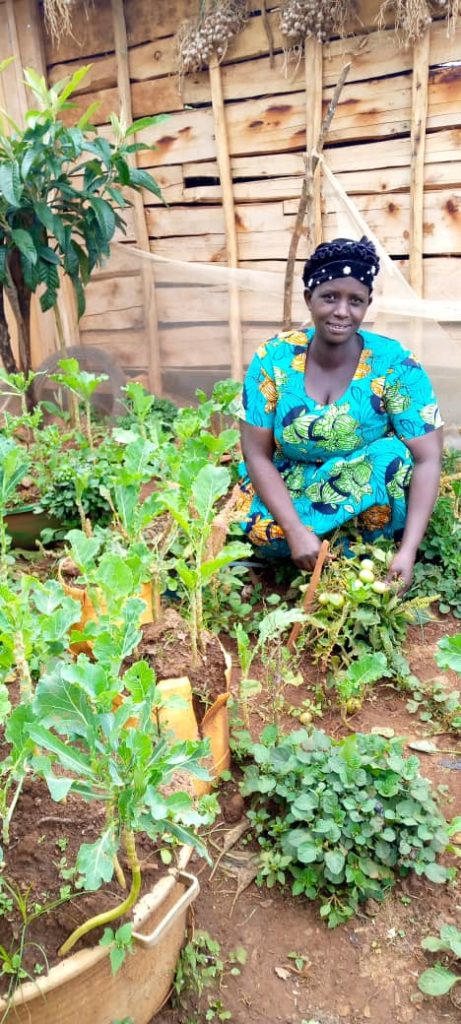
“Before, getting vegetables in the dry season was hard. Vegetables are expensive when there’s no rain, even if you move very close to the [city] center just to buy them,” Nancy explained.
Like most rural farmers, these women did not think it would be possible to grow vegetables in the dry season because of the challenges that come with water access. They simply resorted to growing vegetables only when the rains started, as with all other seasonal crops. Therefore, they missed out on a rich source of nutrients that would boost their and their family members’ nutritional status.
“It is true; we were aware of watering crops in the field, but we always thought it was for rich people, because the well is so far away,” Suena says.
In light of this challenge, the PNSP project trained farmers on kitchen gardening through extension staff working in these sub-counties. PNSP promotes using recycled basins, jerry cans, and sacks or bags for planting vegetables for kitchen gardens. The project also promotes growing leafy vegetables and vitamin A-rich vegetables, such as kale, amaranth, cabbage, spinach, pumpkin, and carrot.
These gardens are placed in backyards, near the kitchen. This proximity allows the farmer to water the garden using residual water from the kitchen. The gardens require only a small space, which is beneficial to farmers in Mbale, whose land size is increasingly fragmented.
The kitchen gardens are made with locally available materials, such as bags or sacks, stones, and soils. The sacks are filled with stones then covered with topsoil. The soil is mixed with organic manure from excess waste, usually cow dung. The vegetables may require a nursery. The extension staff train the farmers on how to build a bed and on the recommended agronomic practices in caring for the vegetables before transplanting them into the sacks. The garden bag’s design ensures that water moves throughout to reach the plants while simply draining in the center, reducing the labor required to water a larger area.
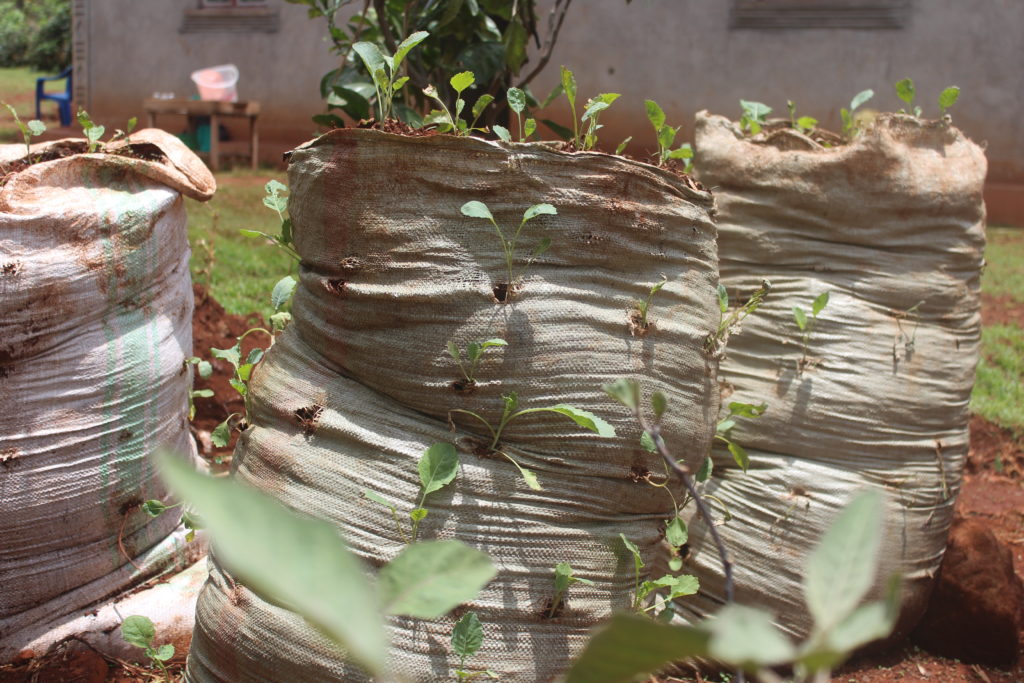
So far, the use of garden bags has been widely adopted by the farmers trained in the Farmer Field Business Schools. After witnessing the positive results, Suena, Nancy, and Lydia went a step further to erect a few more kitchen gardens. The gardens provide enough vegetables for daily consumption, even for large households, with enough left over to sell. Lydia said she was consistently sought after by her other women in the neighborhood who wanted to buy vegetables. After the rainy season, she plans to continue replanting in the bags. Nancy boasts of unexpected extra income for buying household commodities, such as cooking oil, paraffin, sugar, and soap. Nancy also saves some of her income from these sales through the Village Savings and Loan Association (VSLA).
“I want to encourage my fellow women farmers to continue with this method because it has really helped me. I no longer buy vegetables at all. In fact, I sell them and get at least 5,000 shillings [about U.S. $1.37] a week,” Lydia says.
The VSLA is a village savings and credit system managed by a Savings and Credit Solidarity Group whose members (15-30 people) decide get together to save their money. The savings are collected in a credit fund that allows members to borrow sums that they repay with interest. A VSLA is, therefore, a form of a cumulative savings and credit association, a type of autonomous and self-managed financial institution (managed by the community). A committee of at least five people manages the fund, but all members are responsible for the smooth running of operations. The main purpose of a VSLA is to provide a simple savings and credit opportunity in a community that does not have access to formal financial services.
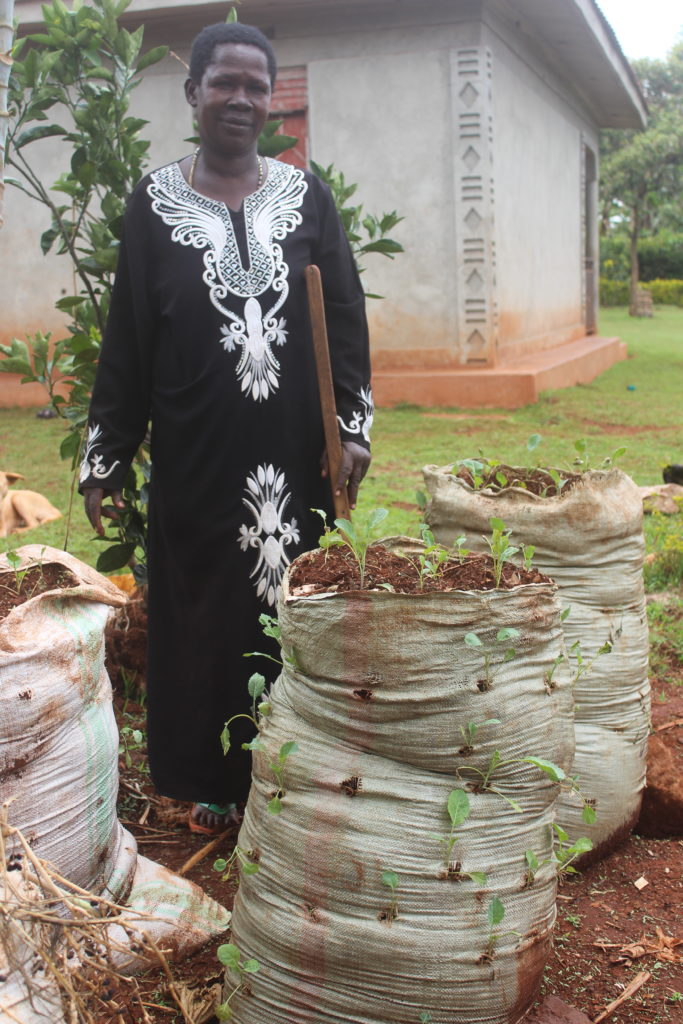
With the new knowledge that Suena, Nancy, and Lydia learned about kitchen gardening, these farmers have sustained the gardens and provided vegetables in the dry season not only to their households but also to their neighborhoods at low prices. In turn, they have been able to provide for healthy meals, increasing household nutrition, and save their income for household items and the VSLA.

